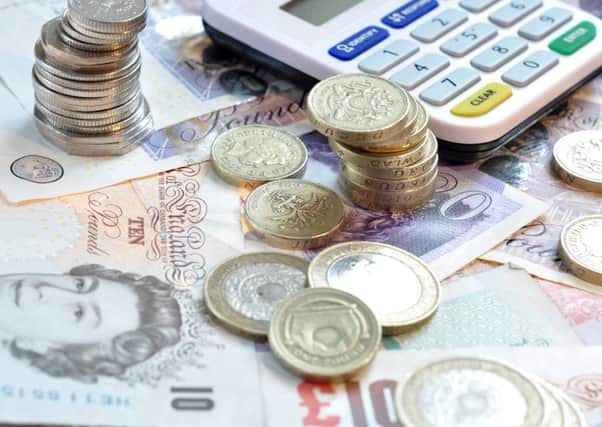Deflation returns to UK for second time since 1960


The Office for National Statistics (ONS) said inflation, as measured by the consumer prices index (CPI) fell by 0.1 per cent in September compared with a year earlier, down from a reading of zero the previous month.
“A smaller than usual rise in clothing prices and falling motor fuel prices were the main contributors to the fall in the rate,” the ONS said.
Advertisement
Hide AdAdvertisement
Hide AdSeptember’s CPI figure of minus 0.1 per cent matches the 0.1 per cent dip seen in April, which was the first deflation since 1960 according to comparable official calculations.
The rate of inflation has been at or around zero for most of this year.
Nancy Curtin, chief investment officer at Close Brothers Asset Management, said: “This shouldn’t be cause for concern. Today’s result is simply evidence of how the UK economy is delivering at the moment – not exactly a steam train bounding ahead at full speed, but certainly enough to keep things moving along at a steady enough pace.
“Yes, the inflation outlook is a little soft, but wage growth is increasing and retail consumption is on the up, which will help to drive things forward over the next few months. Though the effect of the oil price falls is slowly fading, this and global disinflationary pressures are still threading through. All in all, though, today isn’t damaging, and the Bank of England will simply see this is as confirmation of its decision to hold off a rate hike until domestic price pressure begins to rise.”
Last month, the ONS said CPI eased back to zero in August, from 0.1 per cent in July.
Low inflation eases pressure on the Bank of England to increase interest rates as it seeks to keep CPI from heading above its 2 per cent target.
Last week, the Bank of England’s monetary policy committee (MPC) voted to leave interest rates at 0.5 per cent, and delivered some welcome news for households when it predicted that inflation would remain close to zero for longer, staying below 1 per cent until spring 2016.
The MPC said UK growth was seeing a “gentle deceleration” since hitting a peak in 2014 and could continue to ease back if the global economy weakens.
Advertisement
Hide AdAdvertisement
Hide AdDespite recent stock market falls sparked by fears over the slowdown in China’s economy, policymakers said there had been “few signs of a marked weakening in Chinese activity” in recent data.
But it added that the slowdown in other emerging markets, such as Latin America, had been “acute”.
The comments follow recent warnings from the International Monetary Fund that risks of a global financial crash had increased as the slowdown in China and potential US rate rises threaten the stability of debt-laden emerging economies.
In the UK, CPI has been held back this year thanks to low oil and commodities prices, and by the strength of the pound, which makes imported goods cheaper.
The price war fought by supermarkets as they battle to fend off the threat of discounters Aldi and Lidl is also a major factor weighing on CPI. This has led to a period of falling prices for food and non-alcoholic beverages that has lasted for over a year.
Ben Brettell, senior economist at Hargreaves Lansdown, said: “The rate of consumer price inflation has now been zero – or close enough to make no difference – since February. It’s expected to climb in the coming months as the big drop in fuel prices falls out of the year-on-year calculation, but core inflation, which strips out volatile components like food and energy, also remains weak at 1 per cent.
“This offers little suggestion that underlying inflationary pressures are building in the UK economy, despite continuing strength in wage growth. Figures due out tomorrow are expected to show pay growing at 3.1 per cent.”
He added: “While the impact of rising wages remains notable by its absence in the inflation figures, I expect the Bank of England to focus on the risks and exercise caution on interest rates. I see them remaining at 0.5 per cent into the second half of next year, and quite possibly even longer than that.”